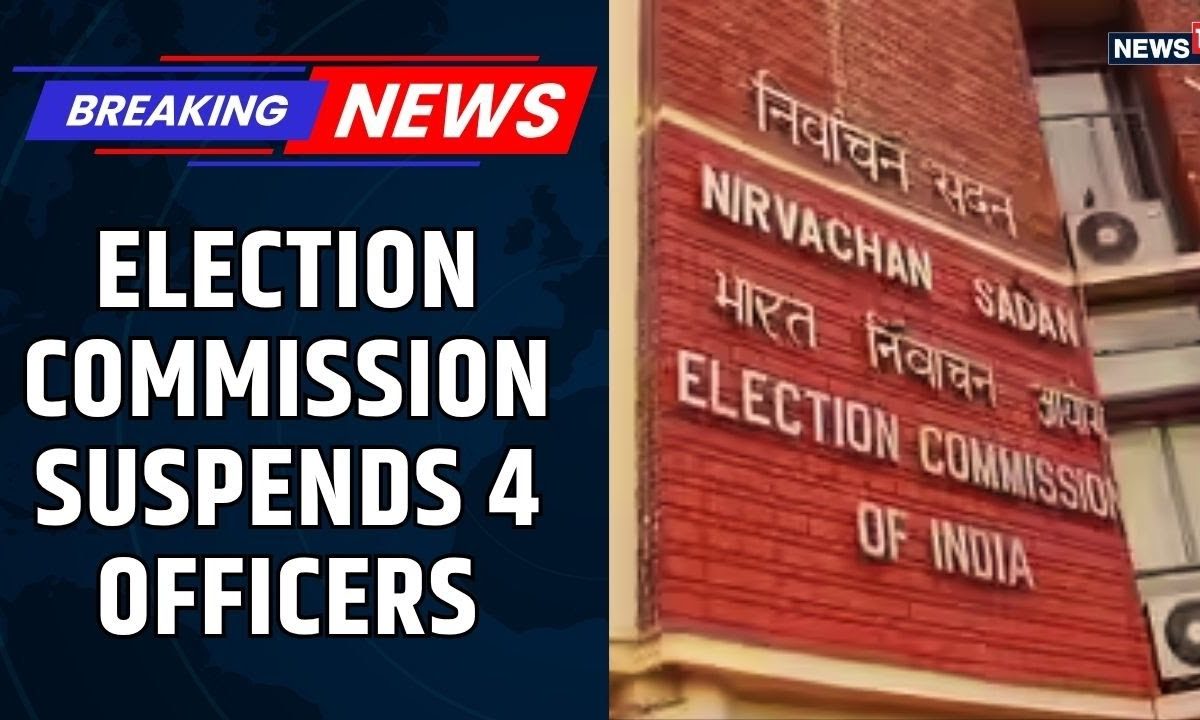

In recent developments, the Election Commission of India (ECI) has taken stringent action against officials allegedly involved in voter fraud, while also facing scrutiny over claims of voter list manipulation. These events have sparked political controversy, with accusations leveled by opposition leaders and rebuttals from the ECI.
Election Commission Suspends Officers
The ECI has suspended multiple officers in West Bengal and ordered an FIR against them following a report highlighting irregularities. The allegations involve the fraudulent registration of voters using forged documents across two assembly constituencies. The suspended officers include Electoral Registration Officers (EROs) and Assistant Electoral Registration Officers (AEROs) from Baruipur Purba and Moyna, as well as a data entry operator. The ECI's action emphasizes the statutory duties of electoral officials and warns against any breach of duty, which is punishable under the Representation of People Act, 1950. It was reported that the suspended officers failed to perform their duty and violated data security policies by sharing login credentials with unauthorized persons.
Rahul Gandhi's Voter Fraud Allegations
Congress leader Rahul Gandhi has made serious allegations of voter fraud, accusing the ECI of colluding with the BJP to steal elections. Gandhi claimed that a significant number of "fake votes" were created in the Mahadevapura Assembly seat in Karnataka to favor the BJP. He presented data alleging duplicate entries, fake addresses, and bulk registrations at single locations. Gandhi has criticized the ECI for not providing digital voter lists, which he argues would make it easier to detect fraud. He has launched a website, votechori.in, to gather public support for his demand for transparency and has urged citizens to join the campaign for clean voter rolls.
ECI's Response to Allegations
The Election Commission has strongly refuted Rahul Gandhi's claims, dismissing them as distorted and baseless. The ECI has asked Gandhi to either submit his allegations under oath or apologize for making false accusations. The Karnataka Chief Electoral Officer (CEO) has sent notices to Gandhi, requesting documentary evidence to support his claims of voter fraud. The ECI has also clarified that the Karnataka government uses the same electoral rolls for its caste census, questioning the contradiction in Gandhi's allegations. In one specific case, Gandhi claimed a 70-year-old woman registered as a voter twice, but the ECI refuted this claim after a preliminary enquiry. The poll body stated that the document shown by Gandhi was not issued by a polling officer.
Bihar Voter List Concerns
In Bihar, concerns have been raised regarding the deletion of a large number of names from the draft electoral rolls. The ECI attributed these deletions to reasons such as death, permanent migration, and duplicate enrolment. However, opposition parties have criticized the special intensive revision (SIR) exercise, alleging that it could disenfranchise eligible citizens. There are also reports of a significant number of voters having incomplete or default house numbers on the voter list. Furthermore, an investigation has revealed thousands of people with existing voting cards in Uttar Pradesh who are illegally listed on the ECI's draft electoral roll of a Bihar assembly constituency.
Political Ramifications
The voter fraud allegations and the ECI's actions have had significant political ramifications. The Congress party is planning a nationwide campaign against voter list manipulation and election fraud. Karnataka Chief Minister Siddaramaiah has called for legal action based on the allegations. The ECI's impartiality has been questioned, with some politicians accusing it of being biased. The controversy has intensified the debate over the integrity of the electoral process and the need for greater transparency.
The Election Commission is under increasing pressure to address concerns about voter fraud and ensure the accuracy of voter lists. The ongoing investigations and political debate highlight the importance of maintaining a fair and transparent electoral system to uphold the democratic process.